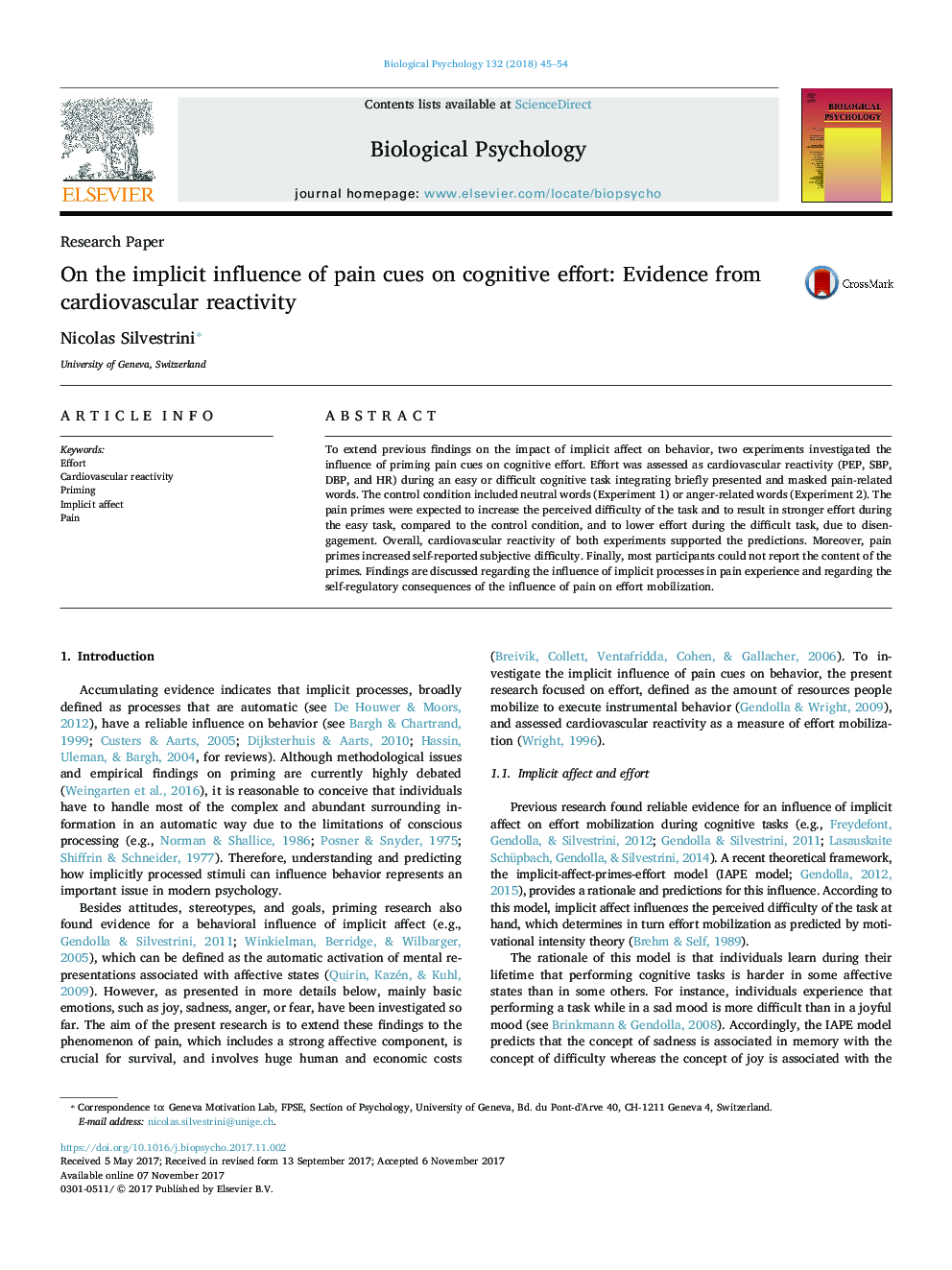| Article ID | Journal | Published Year | Pages | File Type |
|---|---|---|---|---|
| 7278194 | Biological Psychology | 2018 | 10 Pages |
Abstract
To extend previous findings on the impact of implicit affect on behavior, two experiments investigated the influence of priming pain cues on cognitive effort. Effort was assessed as cardiovascular reactivity (PEP, SBP, DBP, and HR) during an easy or difficult cognitive task integrating briefly presented and masked pain-related words. The control condition included neutral words (Experiment 1) or anger-related words (Experiment 2). The pain primes were expected to increase the perceived difficulty of the task and to result in stronger effort during the easy task, compared to the control condition, and to lower effort during the difficult task, due to disengagement. Overall, cardiovascular reactivity of both experiments supported the predictions. Moreover, pain primes increased self-reported subjective difficulty. Finally, most participants could not report the content of the primes. Findings are discussed regarding the influence of implicit processes in pain experience and regarding the self-regulatory consequences of the influence of pain on effort mobilization.
Related Topics
Life Sciences
Neuroscience
Behavioral Neuroscience
Authors
Nicolas Silvestrini,
